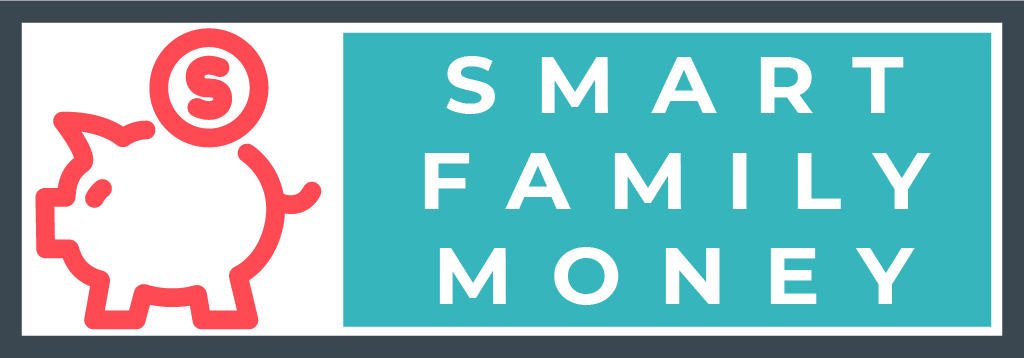DISCLOSURE: This post may contain affiliate links, meaning when you click the links and make a purchase, we receive a commission. Also an Amazon Associate, I earn from qualifying purchases. DISCLAIMER: The information and opinions within this content are for information purposes only. Guidance is based on personal interpretations and in no way, represents legal or financial advice. For more information, read my disclosure policy.

I was recently having a discussion about which kind of account to save money in to reduce taxes. Reducing taxes is always a good goal and it is one of the skills that is necessary for optimizing your finances. Most people have a variety of savings and investing options and very few people have enough money to save the maximum allowed in each. So where do you start?
A typical family might have all of these choices for investing their money:
- Regular bank savings account
- Taxable investment account
- 401k or 403b retirement account through an employer
- Traditional IRA
- Roth IRA or Roth 401k
- 529 College Savings Account
- An HSA or Health Savings Account (if the family has a high-deductible medical insurance plan)
You always want to stick with tax-advantaged accounts whenever possible because taxes can take away a large percentage of your money. The government tries to encourage people to save for retirement, college, and healthcare by allowing people to avoid or defer taxes. If the government wants to help you save more money, take advantage of it! The problem is not all tax-advantaged accounts are created equal. When choosing where to put your money, consider the tax advantages of each. The different types of accounts can be divided into four major categories:
1. TAXED now and TAXED later
- Regular bank savings accounts: It is funded with money that has been taxed and any interest earned is also fully taxable as income.
- Taxable investment account with a brokerage firm: Within a taxable brokerage account, you can buy stocks, bonds, mutual funds, etc with money that has already been taxed. If there are dividends, those are taxable in that year. If you sell stocks and make a profit, the profit is taxable as capital gains (although if you lose money, that is tax-deductible as a capital loss).
2. NOT taxed now but TAXED later
- 401k, 403b, Traditional IRA: In these retirement accounts, you put money in that has not yet been taxed. When you’re retired and taking distributions from these accounts, it will be taxed as income. Thankfully, most retirees are in a lower tax bracket than they were in their working years, so the taxes tend to be low.
3. TAXED now but NOT taxed later
- Roth IRA or Roth 401k: With these accounts, you’re investing money that has already been taxed. This money grows tax-free and there are no more taxes as long as the money is taken out for qualified reasons (retirement age, disability, or building a first home).
- 529 College accounts: College accounts are funded with money that has already been taxed, except in the case of states that give you a state tax break for contributing.
4. NOT taxed now and NOT taxed later
- HSA accounts: HSA stands for Health Savings Account and they are the ONLY kind of account that allows you to contribute money that has not been taxed AND use it without it being taxed. It’s really kind of magical when you think about, isn’t it?

HSA money is magical… or maybe I just wanted an excuse to add a unicorn picture!
From the list above, you can understand why I am arguing that you should max out your HSA contributions. They are the ONLY kind of account that allows you to contribute tax-free money and withdraw money tax-free. It’s the best deal around! Let’s look at some more details.
Pros of saving in an HSA:
- Contributions are tax-free and if you do them through payroll deductions (as opposed to putting the money into your account personally), you can even avoid FICA taxes (social security and medicare, which is 7.65%), if your income is below the FICA cut-off (currently $118,500/year).
- Withdrawals are completely tax-free if used for qualified medical expenses.
- Withdrawals can be made for any reason after age 65 and only subject to regular income tax (no penalties). It then becomes similar to a traditional retirement savings.
- The money remains in the account from year-to-year (no “use it or lose it” clause).
- The account is fully in your control, not your employer’s control like an FSA (flexible spending account).
Cons of saving in an HSA:
- Contributions are only allowed if you have a qualified high deductible medical insurance plan. If you no longer have a high deductible plan, you can continue to withdraw from it for medical expenses, but you may not contribute more money.
- Account options and investment options are limited as not many financial institutions offer HSAs. Be cautious of fees on HSA accounts, too.
- Withdrawals are subject to a penalty of 20% plus regular income taxes if made before age 65 for reasons other than qualified medical expenses.
- The savings limit is not that high if you’re looking at it as a retirement plan (currently $6,750/year for a family plan).
The only kind of savings plan that is a better deal than an HSA is a 401k with matching from an employer. If your employer if going to give you FREE money in the form of a 401k match, PLEASE TAKE IT! After saving up to the 401k matching amount, the next step I would take is maxing out your HSA, if available. If you have more money available for saving after those options, look into your other savings options (either tax-free now or tax-free later).
My family has been on a high-deductible insurance plan for the last two years and contributed the maximum to our HSA. Unfortunately, our medical expenses have exceeded the amount of money in our HSA so there is nothing left in our account. The good news is that we were able to pay for our high medical bills with money that was COMPLETELY tax-free (including FICA taxes), which is an excellent deal. With orthodontia for two kids expected in the next few years, we don’t plan to have much leftover in our HSA any time soon, but we’re glad to have tax-free money available!
If you’re considering a high deductible health plan (with HSA) for your family versus the option of a PPO, please check out my follow-up post comparing these options.

Michael Volk
Monday 17th of May 2021
Agreed